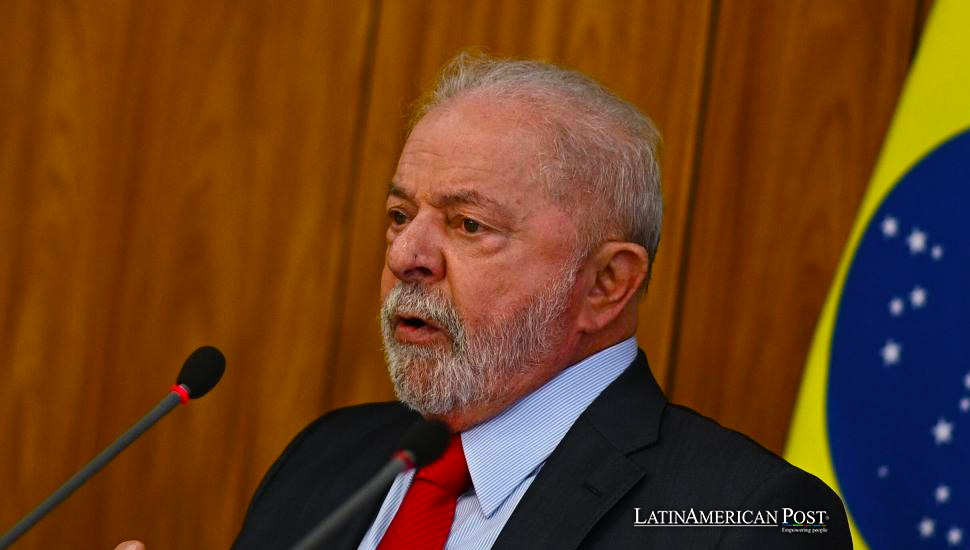Brazil May Fall Short of Achieving Fiscal Targets in 2024

As 2024 unfolds, Brazil confronts a significant fiscal challenge, with the federal audit court projecting a primary deficit of 55.3 billion reais, casting doubt on President Luiz Inacio Lula da Silva’s promise to eliminate the fiscal deficit.
Brazil’s Fiscal Challenge in 2024
Brazil is set to end 2024, grappling with a significant fiscal hurdle. The federal audit court (TCU) forecasts a primary deficit of 55.3 billion reais ($11.2 billion), raising concerns over President Luiz Inacio Lula da Silva’s administration’s ability to uphold its commitment to eradicating the fiscal deficit. This projection, emerging amidst President Lula’s increased spending on social initiatives, reflects a growing skepticism in financial circles about the government’s fiscal management.
In its first full year, the Lula administration boosted social spending, triggering worries among market analysts about the government’s fiscal targets. Despite a decline in immediate interest rates, the persistent elevation of long-term future interest rates signals a lingering unease in the market regarding Brazil’s fiscal trajectory.
TCU’s Critique and Revenue Growth Concerns
The TCU’s report cast further doubts. It critiqued the government’s optimistic revenue growth projections, labeling them based on various measures with outcomes that still need to be fully clear and predictable. The government’s expectation of net primary revenue hitting 19.2% of the gross domestic product (GDP) – the highest since 2010 – was viewed by the TCU as possibly overestimated. This skepticism is rooted in the disparity between these forecasts and the revenue trends observed in recent years.
Planning Minister Simone Tebet, defending the government’s financial projections, described them to the press as reasonable. Nonetheless, using the previous year’s revenue benchmarks and the government’s expenditure plans for 2024, the TCU predicted a primary deficit equivalent to 0.5% of the nation’s GDP.
Market Predictions and Legislative Concerns
This outlook aligns with the predictions of other market players, even in the wake of legislative approval for government fiscal measures intended to bolster revenue at the end of 2023. The effectiveness of these measures remains a topic of debate. Marcus Pestana, a former federal deputy and executive director of the Senate’s Independent Fiscal Institution (IFI), noted that these fiscal initiatives could have been more diluted during the legislative process, potentially undermining their intended impact.
The central bank’s weekly Focus survey, which polls private economists, echoes these concerns. It continues to project a primary deficit of about 0.8% of GDP. This figure has remained unchanged since October and notably exceeds the government’s zero-deficit target for the year, accommodating a variation of up to 0.25% of GDP either way.
The unfolding fiscal scenario in Brazil is not just a number game but has real implications for the country’s economic health and policy direction. Having come to power with ambitious promises of economic revitalization and poverty alleviation, the Lula administration finds itself at a crucial juncture. Balancing these socio-economic objectives with the need for fiscal prudence is a delicate task.
Apprehensions about Financial Stability
The TCU’s projection and the market’s response reflect broader apprehensions about Brazil’s financial stability. High long-term interest rates are a symptom of this unease, suggesting investor concerns about the country’s ability to manage its debts sustainably. This scenario challenges the government’s efforts to stimulate economic growth while maintaining fiscal discipline.
Also read: Panama Canal’s Drought Crisis to Affect Global Trade
The divergent views between the government and financial analysts highlight a crucial tension in Brazil’s current economic landscape. On the one hand, there is a political commitment to social welfare and economic stimulus; on the other, there is the practical necessity of ensuring fiscal sustainability. The government’s task is to find a middle ground where social objectives maintain the country’s financial health.
The international community and investors are closely watching as Brazil navigates through these fiscal challenges. The country’s ability to manage its fiscal affairs effectively will have significant implications for its economic prospects and investor confidence. The outcome of this fiscal balancing act will likely shape Brazil’s economic trajectory in the years to come and test the resolve of President Lula’s administration in fulfilling its ambitious socio-economic agenda.





